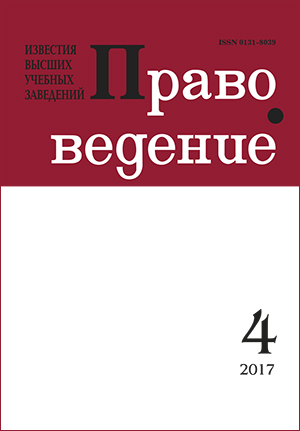Communicative approach to the formation of legal policy in Russia and Belarus: the methodological aspect
Abstract
The article contains the comparative analysis of the most important methodological ideas developed by the lawyers of Russia and Belarus on the basis of a communicative approach in relation to the national legal policy. The author compares the main theoretical positions of communicative and instrumental approaches, other innovations of a methodological nature which help to determine new opportunities in the process of improving the national legislation. The difference in approaches is also emphasized. Belarusian methodologists see their main tasks in the formation of certain dominants of the legal policy in different aspects (doctrinal, normative, civilizational ones). The theoreticians of the communicative approach in Russia primarily focus their main efforts on the field of theory and methodoly. In addition, representatives of the Belarusian methodological school emphasize that the modern European legal concept constitutes a result of the development of the Western civilizational and cultural region, which leads to a critical attitude towards traditions and a positive attitude towards various innovations. The supporters of the communicative theory in Russia adhere to another point of view: the modern postnonclassical paradigm of knowledge acts a successor to the New European traditions, among others, including them in its methodological toolkit. Examples characterizing the application of communicative tools in order to solve urgent legal and social problems are given in the article.
Keywords:
communicative approach, legal methodology, phenomenological theory, improvement of legislation, national legal system, instrumental approach, legal policy
Downloads
References
Downloads
Published
How to Cite
Issue
Section
License
Articles of "Pravovedenie" are open access distributed under the terms of the License Agreement with Saint Petersburg State University, which permits to the authors unrestricted distribution and self-archiving free of charge.




